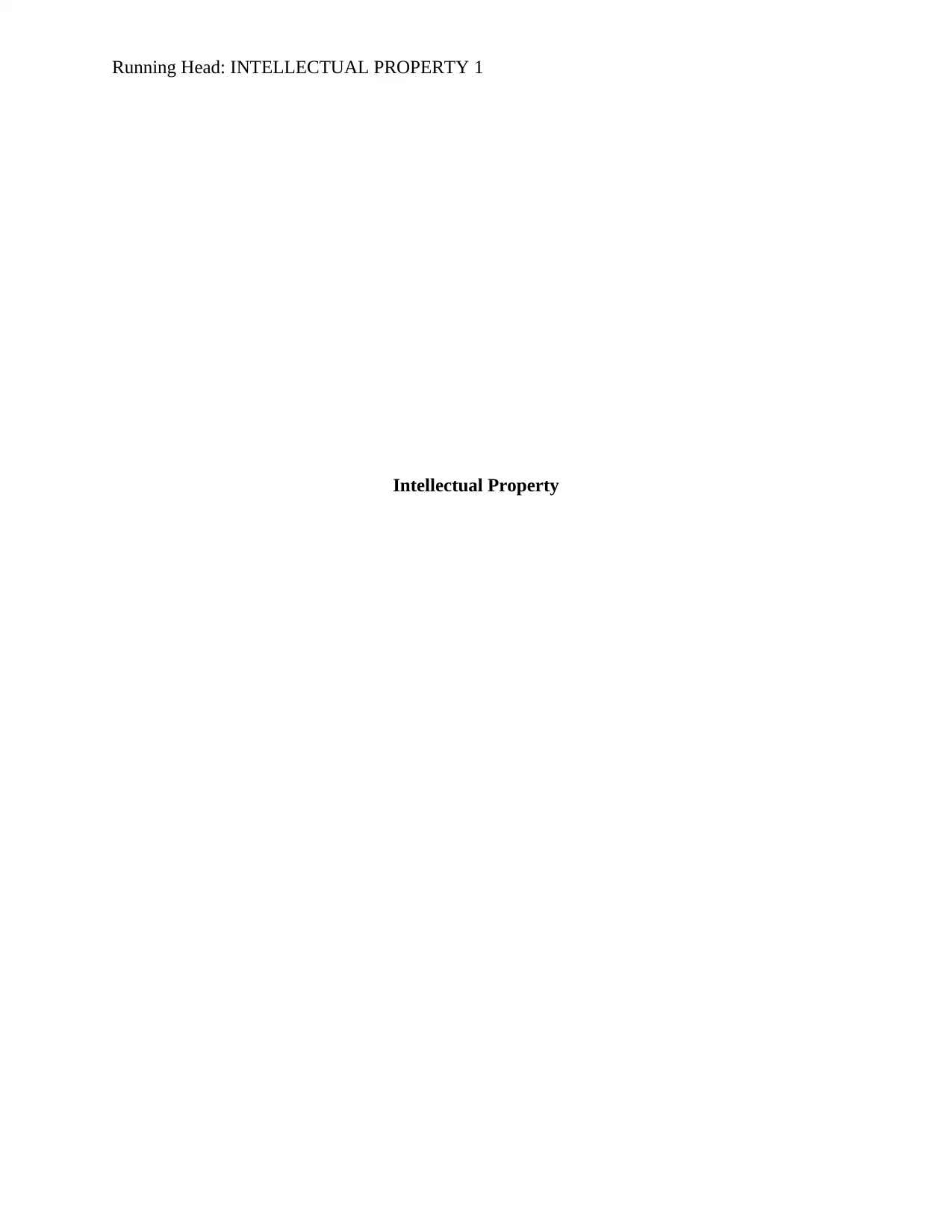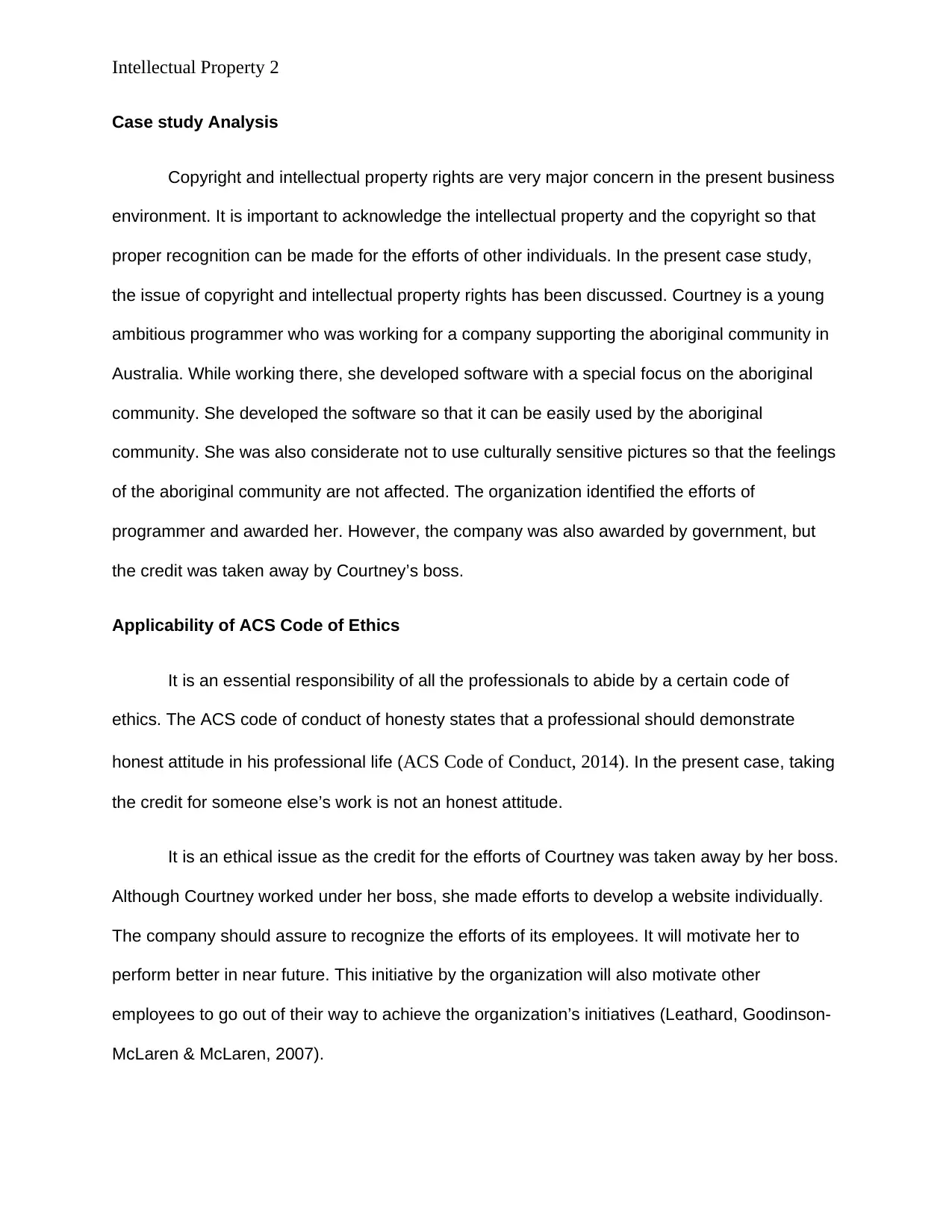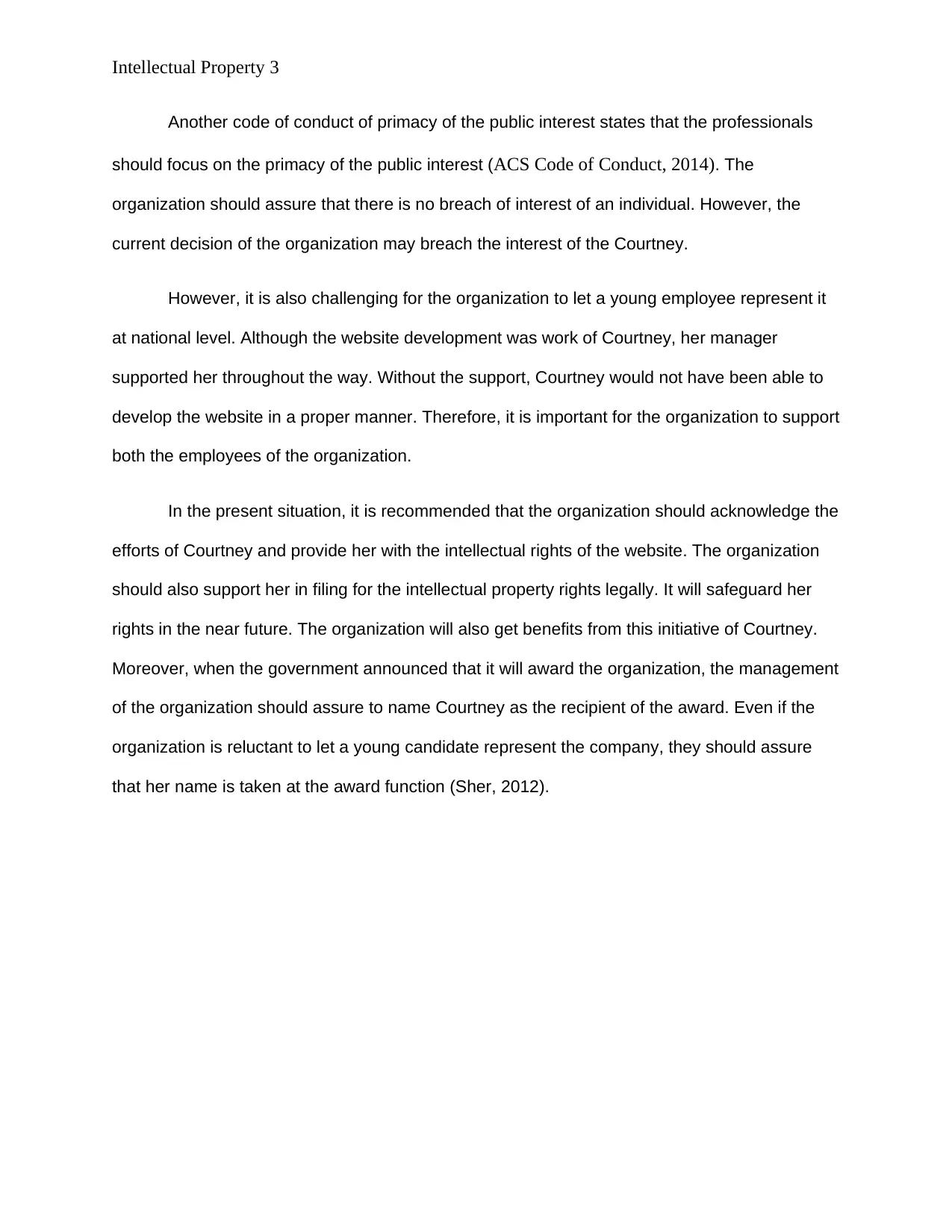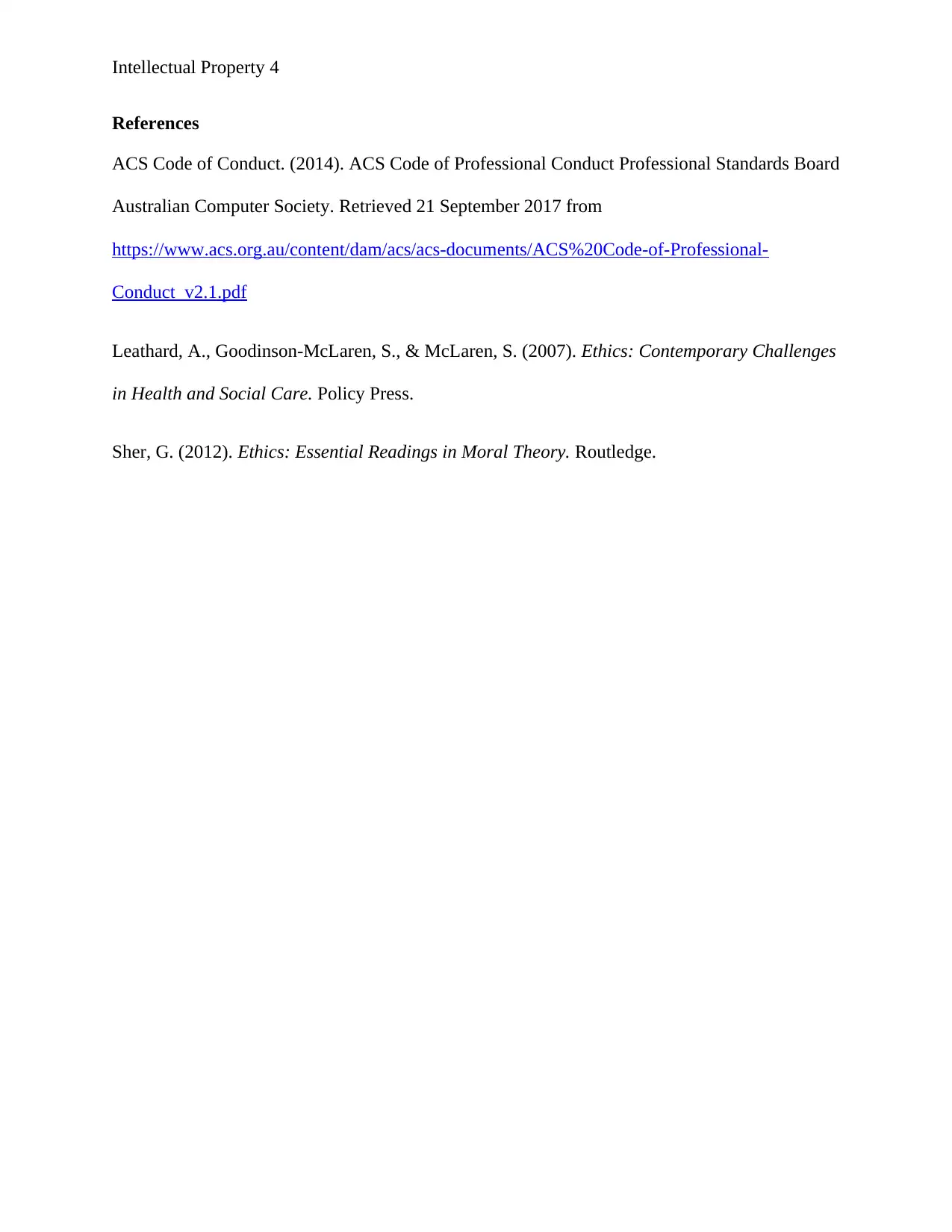Intellectual Property: A Case Study Analysis of Rights and Ethics
VerifiedAdded on 2020/03/23
|4
|684
|40
Case Study
AI Summary
This case study analysis examines a scenario involving intellectual property rights, copyright, and ethical conduct within a software development context. The case revolves around a programmer who developed software for the aboriginal community, and her employer taking credit for her work. The analysis highlights the importance of the ACS code of ethics, specifically honesty and the primacy of public interest. The case study underscores the need for organizations to recognize and respect employee contributions, suggesting that the programmer should be given intellectual property rights and proper recognition for her work, including being named as the recipient of any awards. The analysis also provides references to relevant literature on ethics in professional contexts.
1 out of 4










![[object Object]](/_next/static/media/star-bottom.7253800d.svg)